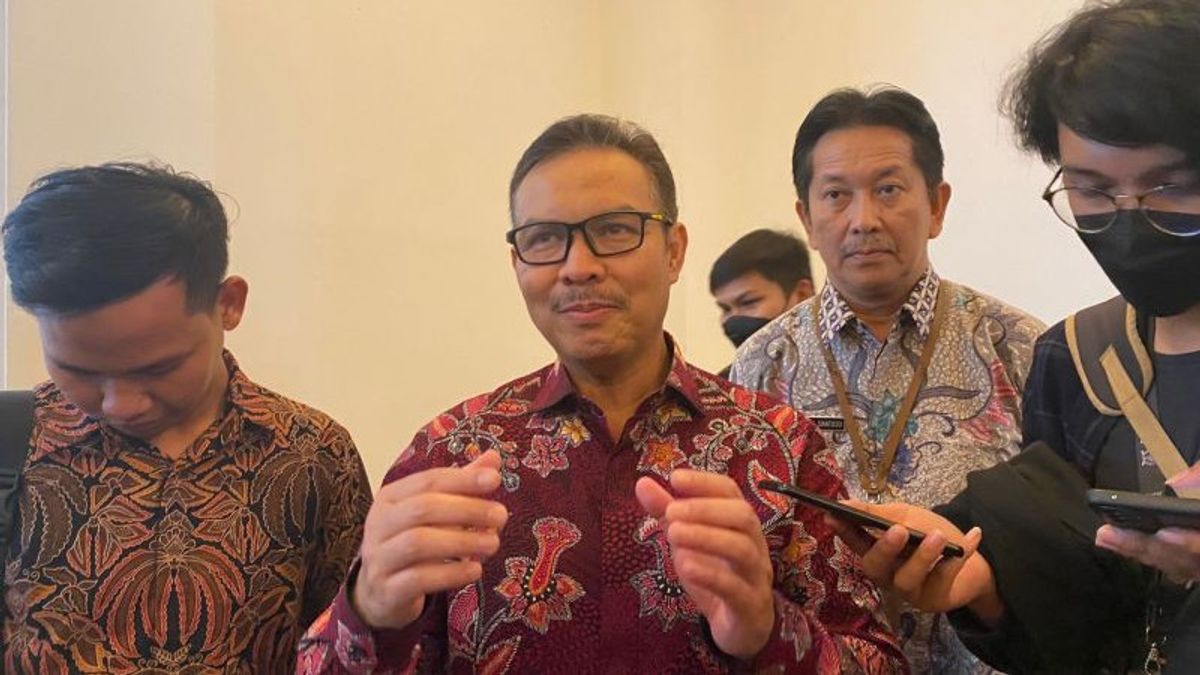JAKARTA - Data from the National Population and Family Planning Agency (BKKBN) states that 300 thousand babies born each year are at risk of stunting. This is the impact of the health screening of prospective mothers who are still weak.
" “ We report in Indonesia (a new couple) who are married between 1.9 million and 2 million per year. Of the two million who got married pregnant in the first year of 1.6 million and of the 1.6 million stunted, there are 300 thousand in the current situation,” said Head of BKKBN Hasto Wardoyo at the Kick Off Meeting which was attended in Jakarta, Antara, Thursday, February 16.
Hasto said that around 300 thousand babies were born stunted, because many couples did not check their health condition before marriage. Many couples are busy prioritizing their pre-wedding performance which takes a lot of money, compared to pre-conception.
As a result, many prospective mothers are late in getting treatment because they just found out that they have a disease or anemia. That is, mother's pregnancy is not well prepared.
Not to mention, said Hasto, late health screening has forced many mothers to die in vain when giving birth. In BKKBN's data, the maternal mortality rate (AKI) in Indonesia is now still 189 per 100,000 live births.
“We are sad, we don't just see his death everywhere. You can imagine if 189 died from 100,000, what would be the death per million? They died in vain due to childbirth, even though the mother's death could have been prevented,” he said.
Another impact of the weak health screening has led to a high infant mortality rate (AKB), believing that it currently reaches 16 per 1,000 live births. Meanwhile, the stunting prevalence rate is 21.6 percent.
"Therefore, if someone wants to get married, we first screen the Hb level, the arm circumference meets the requirements and that's what we have to do with the Minister of Health," he said.
As a real effort to create a quality generation from before birth, the BKKBN itself has formed a Family Assistance Team (TPK) of 600 thousand personnel divided into 200 thousand teams.
The goal is to assist the family either in preparing for a healthy pregnancy or echoing the dangers of stunting. Although currently many personnel are still carrying out training, various forms of TPK training are targeted to be completed in March 2023, so assistance is of higher quality.
Another way to prevent stunting babies is through the distribution of Blood Add Tablets (TTD) for young women at school with the Ministry of Health. Control of pregnancy is also further strengthened by increasing the minimum time of ANC and ultrasound examinations.
The Elsimil application is even presented to record the health condition of the bride and groom in full. For example, recording height and weight, hemoglobin levels, anemia or not, and so on. Together with the Ministry of Religion, these data are used as a condition for getting married so that couples who plan to have children can create a good pregnancy period and are not at risk.
The program of Mr. Asuh Anak Stunting (BAAS) was also presented to increase the nutritional intake of families at risk of stunting which had been recorded based on the results of screening and data collection belonging to the BKKBN.
Thus, Hasto hopes that with a number of screenings being intensified, the birth of babies at risk of stunting can be suppressed.
The English, Chinese, Japanese, Arabic, and French versions are automatically generated by the AI. So there may still be inaccuracies in translating, please always see Indonesian as our main language. (system supported by DigitalSiber.id)
Most Popular Tags
#Prabowo Subianto #New Year #airplane accident #Hasto Kristiyanto #nataru #squid game 2Popular
03 Januari 2025, 00:02
03 Januari 2025, 06:15
03 Januari 2025, 04:00













